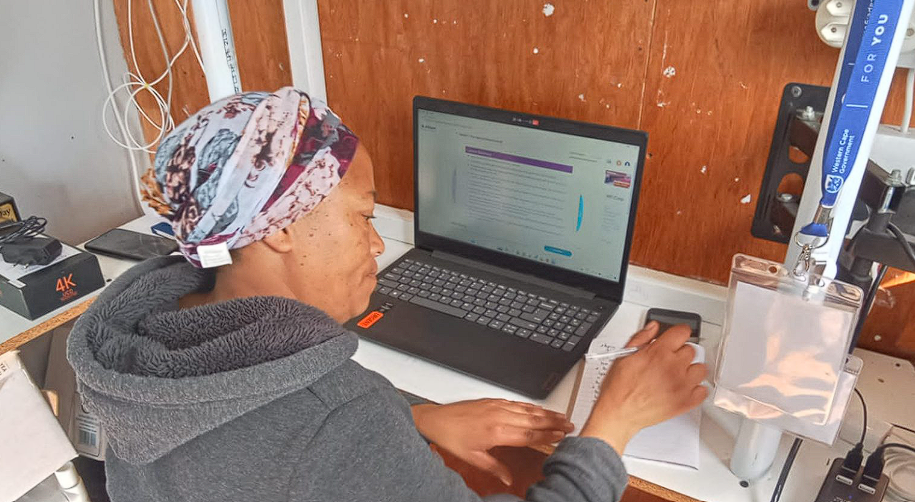Articles
Thousands of South Africans are losing their citizenship – some without even realising it
-
2 years ago
Many South Africans are being stripped of their South African citizenship when they voluntarily obtain citizenship in a second country.
Gary Moore, a Senior Researcher at the Free Market Foundation, said that thousands of South Africans are having their citizenship stripped, with many, if not most, not knowing.
Moore looked at a 2021 application made to the Pretoria High Court for an order to declare Section 6(1) of the Citizenship Act constitutionally invalid.
Section 6(1) states that South Africans will automatically lose their citizenship if they voluntarily obtain citizenship of another country – a continuation of apartheid law.
However, the South African Constitution states that no citizen may be deprived of citizenship.
Moore said that Section 6(1) also denies certain fundamental rights to South Africans that are enshrined in the Constitution, including the right to vote, the right to reside in South Africa, the right to stand for public office, and the right to choose any occupation.
South Africans must apply to the Minister of Home Affairs for permission to retain their South African citizenship as per the Citizenship Act. The Minister may thus grant or deny permission at their own discretion. Moore said that the provision is a flagrant violation of South Africa’s Constitution.
The case
The applicant in the case said that many South Africans are unaware of the terms of Section 6(1) of the Act and do not know that they have to approach the Home Affairs Minister for permission to retain their citizenship.
However, Pretoria High Court Judge Jody Kollapen upheld Section 6(1).
Judge Kollapen referred to the Constitution’s founding provisions about citizenship, which state that South Africans are entitled to the rights and benefits of citizenship but are equally subjected to its duties and responsibilities, and the legislation provides for the acquisition, restoration and loss of citizenship.
Kollapen said that the fundamental right to not be “deprived” of citizenship in the Bill of Rights was aimed at preventing statelessness. He added that the Citizenship provision in the Constitution does not apply to South Africans applying for citizenship in another country, as they are not stateless.
Moreover, the judge said that Section 6(1) of the Citizenship Act did not amount to citizens being “deprived” of citizenship but rather a “loss”, which is a forfeiture and does not meet a justifiable requirement of the Bill of Rights.
Commentary
Moore said that the judge’s decision was superficial and flawed.
He noted that the judge’s interpretation of being deprived of citizenship was to prevent statelessness fails to address another section (8(2)), which authorises the Minister to deprive South Africans with citizenship in another country from their South African citizenship in the public’s interest or if the person has been sentenced to imprisonment for a year or more.
In addition, the applicants shared results from an online survey that showed many South Africans lost their citizenship due to being unaware of Section 6(1), many of whom did not intend to forego their South African citizenship.
However, Kollapen disagreed with this argument and said that South Africans looking to emigrate to other counties with the possibility of acquiring citizenship should familiarise themselves with the relevant laws.
Moore said that Kollapen’s argument failed to consider South African citizens seeking a second passport for easier travel and saw migration as the only possible reason to have a second passport.
Kollapen also relied on the notion of ignorantia juris neminem excusat (“ignorance of the law excuses no one”), but this principle is not generally applied. The courts say that persons cannot be assumed to renounce their legal rights unless they have specifically stated.
Kollapen not only dismissed the application but also dismissed an application for leave to appeal, despite the effect Section 6(1) has on thousands of people’s lives.
The Supreme Court of Appeal (SCA), however, granted leave to appeal, and the appeal is reportedly set to be heard in court on 23 February 2023.
Should the SCA set aside Kollapen’s decision and declare Section 6(1) constitutionally invalid, that order will have to be subsequently confirmed by the Constitutional Court.
Related Articles Posts
Categories
Popular Post
-
 SA’s IT spend to outpace GDP growth 1 year ago
SA’s IT spend to outpace GDP growth 1 year ago -
 Vodacom, Netstar launch free in-taxi Wi-... 1 year ago
Vodacom, Netstar launch free in-taxi Wi-... 1 year ago -
 South Africa under pressure to fill cybe... 1 year ago
South Africa under pressure to fill cybe... 1 year ago -
 Organisations with a strong employee val... 1 year ago
Organisations with a strong employee val... 1 year ago -
 Joint policy-in-action event highlights... 1 year ago
Joint policy-in-action event highlights... 1 year ago -
 Boost your digital transformation journe... 1 year ago
Boost your digital transformation journe... 1 year ago







